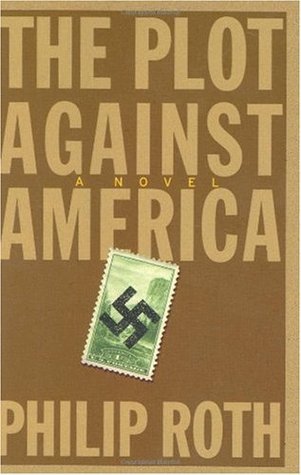More on this book
Community
Kindle Notes & Highlights
Ickes notes that while Lindbergh is swift in renouncing his Army commission, he remains adamant in refusing to return the medal received from Nazi Germany.
December 10 address, scheduled for Boston America First rally, canceled by Lindbergh after Japanese attack on Pearl Harbor and U.S. declaration of war on Japan, Germany, and Italy. Activities of America First Committee terminated by leadership, and organization disbands.
Travels to Washington to seek reinstatement in Air Corps, but key Roosevelt cabinet members strongly oppose, as does much of the press, and Roosevelt says no. Repeated attempts to find position in aviation industry also fail,
Denounces fascism and American Nazis; in response to Nazis labeling him “Jew Mayor of New York,” quips, “I never thought I had enough Jewish blood in my veins to justify boasting of it.”
FEBRUARY–APRIL 1943. Presses Roosevelt to return him to active Army duty as brigadier general, but Roosevelt, having failed to grant him a cabinet position or consider him for a running mate, declines, on advice of intimates who consider La Guardia too provocative; the disappointed mayor returns to his “street-cleaner’s uniform.”
Inventor of modern gossip column naturally becomes regular at New York celebrity night spot the Stork Club.
Weekly Winchell quarter hour of insider gossip and general news soon claims radio’s largest audience,
Good evening, Mr. and Mrs. America and all the ships at sea, let’s go to press!”—becomes part of American parlance.
coins neologisms “razis” and “swastinkers” to ridicule the Nazi movement.
1940. Winchell’s combined audience for column and newscast estimated at fifty million, more than a third of America’s population;
writes pseudonymous columns for PM attacking Republican candidate Willkie after Hearst censors Winchell’s criticism of Willkie in Daily Mirror.
With end of war, turns to far right; becomes fierce foe of Soviet Union and anti-Communist supporter of Senator Joseph McCarthy.
Fades into near obscurity in mid-1950s; at his death in 1972, funeral attended only by his daughter.
Over the years, converts Montana state government into bipartisan Wheeler machine.
Coolidge overwhelmingly defeats both Democrats and Progressives, though latter party polls six million votes nationwide and nearly forty percent of vote in Montana.
1937 Wheeler bitterly opposes the president over his legislative proposal to enlarge Supreme Court and “pack” it with New Deal supporters; Wheeler’s leadership leads to controversial bill’s defeat, and aggravates personal enmity between him and the president.
Winchell includes Thorkelson in Liberty magazine series of articles called “Americans We Can Do Without.” Congressman O’Connell, commenting on electoral activities of Wheeler Democrats, describes Wheeler as a “Benedict Arnold to his party and a traitor to his president.”
Meets that month to make plans “for countering war agitation and propaganda” with Charles A. Lindbergh and a group of isolationist senators; on Senate floor, defends Lindbergh against accusations of being pro-Nazi, and some months later, after Roosevelt publicly compares Lindbergh to a Civil War “Copperhead” (a northerner who sympathized with the South), calls the remark “shocking and appalling to every right-thinking American.”
Speaks out against draft, calling Roosevelt’s peacetime conscription proposal “a step toward totalitarianism.”
Publicly—and prematurely—reveals that U.S. is sending troops to Iceland; White House, along with Prime Minister Churchill, accuses Wheeler of endangering American and British lives. Again charged with compromising military secrecy when, in November 1941, he leaks to isolationist Chicago Tribune a classified War Department document disclosing U.S. strategy in the event of war.
1950s. Practices law in Washington, D.C. Allies himself ideologically and politically with Senator Joseph McCarthy.
1908. Designed for rural America, Model T Ford is introduced and, until 1927, is the only model built by the company.
In 1914 Ford announces a basic wage of $5 for an eight-hour day; offer extends, in fact, to only a portion of Ford work force. Nonetheless his advocating the “Five Dollar Day” brings Ford much praise and fame as an enlightened businessman,
“I don’t like to read books,” he explains. “They muss up my mind.” “History,” he declares, “is more or less bunk.”
“I know who caused the war. The German-Jewish bankers. I have the evidence here. Facts. The German-Jewish bankers caused the war.”
With American entry into war, pledges to “operate without one cent of profit” in fulfilling government contracts, but neglects to do so.
At urging of President Wilson, runs for Senate as a Democrat—though formerly identified as a Re-publican—and is defeated in close election. Attributes his losin...
This highlight has been truncated due to consecutive passage length restrictions.
1920. In May, Dearborn Independent—local weekly bought by Ford in 1918—prints first of ninety-one detailed articles devoted to exposing “The International Jew: The World’s Problem”; in ensuing issues, serializes the text of the fraudulent Protocols of the Learned Elders of Zion while claiming the doc...
This highlight has been truncated due to consecutive passage length restrictions.
Circulation rises to close to 300,000 by second year of publication; subscriptions to paper are forced upon Ford dealers as a company product, and the strongly anti-Semitic articles are collected in a four-volume edi...
This highlight has been truncated due to consecutive passage length restrictions.


